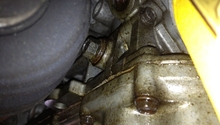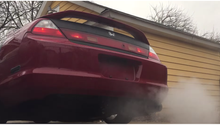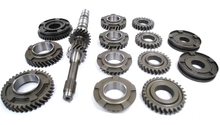Honda Accord: Why is My Car Jerking?
Are you jerking at idle, in stop-and-go traffic, or while accelerating? Any or all of these might be your problem. Read on for a description of the possible solutions, so you can determine which remedy is right for you.
This article applies to the Honda Accord (1990-2002).
It can be irritating as well as dangerous to have your engine jerk, especially if it does it intermittently or unexpectedly. This article will go through the solutions (from simple to complex), so you can determine which fix you'd like to apply to the symptoms your Accord is displaying.

Materials Needed
- Ratcheting wrench
- Sockets
- Extensions
- Hydraulic jack
- Air ratchet
Step 1 – Shifting
Inexperienced drivers with manual transmissions may experience jerky shifting, or engine thrashing if their technique is not smooth. The engine may stop jerking once they become better at shifting gears. It is important to match the "revs to road speed" on up-shifts and down-shifts. For example, when shifting from 1st gear to 2nd gear, you need to let the rpms drop to the corresponding gear speed, and then pull out the clutch. If you pull out the clutch before the revs fall to the correct rpm, the engine will buck. If you wait too long and the rpm is too low, the engine will jerk. The same principle applies to down-shifting. If you match revs between gear changes perfectly, your shifts will be very smooth.
Also, Honda designed five speeds with "positive shifting," which means you feel the shifts more than with other transmissions.
Step 2 – Ignition parts, filters, and transmission fluid
Your engine may be jerking because of bad ignition parts like spark plugs or spark plug wires. A clogged filter can inhibit liquids and air from going where they're supposed to go. Low or dirty transmission fluid can cause the transmission to slip or jerk.
- Check the plugs for corrosion, cracks or gunk. Replace bad plugs.
- Check the spark plug wires for cracks. Also, check the rotor and cap for the same. If you find any crack or abrasions, replace the part(s).
- Clogged filters can include the air filter, fuel filter and PCV valve. Replace dirty air and fuel filters. Clean or replace a dirty PCV valve.
- Check your transmission fluid, and refill or replace the fluid if it is low or dirty.
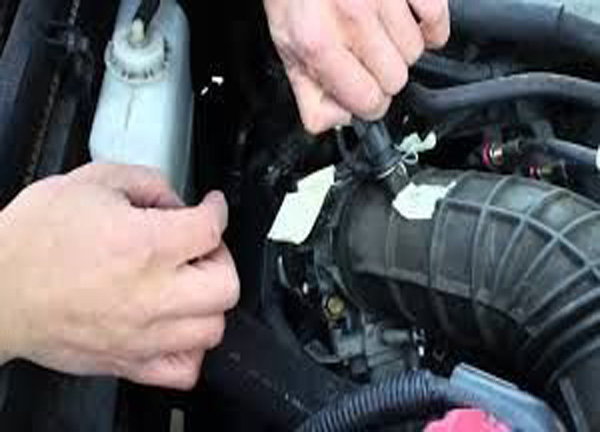
Pro Tip
Try these fixes one at a time, and monitor whether the replacement solves the problem.
(Related Article: How to Replace the Fuel Filter - Honda-Tech.com)
Step 3 – Throttle cable and throttle body
A loose throttle cable may cause your engine to jerk or hesitate. Make sure the tension on the cable is properly adjusted. A gunky throttle body can cause the car to hesitate and jerk.
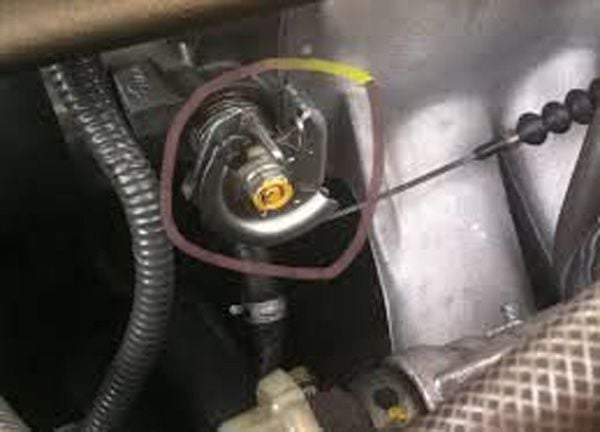
Figure 2. Adjust loose throttle cable. 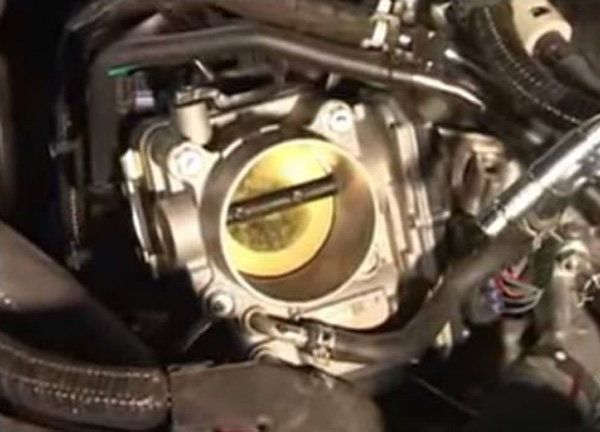
Figure 3. A clean throttle body.
Step 4 – Weak battery
If the engine jerks when you corner or when the A/C kicks in, it could be a weak battery. The air conditioning, power steering, power windows, etc. are electric. When, for example, the A/C kicks in and the battery is weak, it puts a strain on the alternator, which then puts a strain on the engine. This can make the engine jerk.
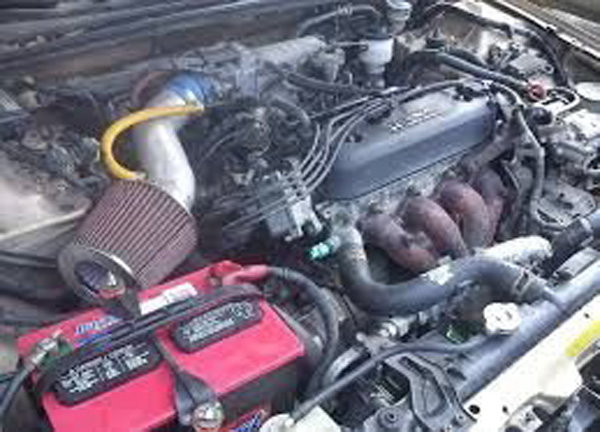
Step 5 – Bad oxygen sensor
A bad O2 sensor will not allow your engine to get enough oxygen, and this may cause it to jerk. Replace the oxygen sensor and see if this solves your problem.
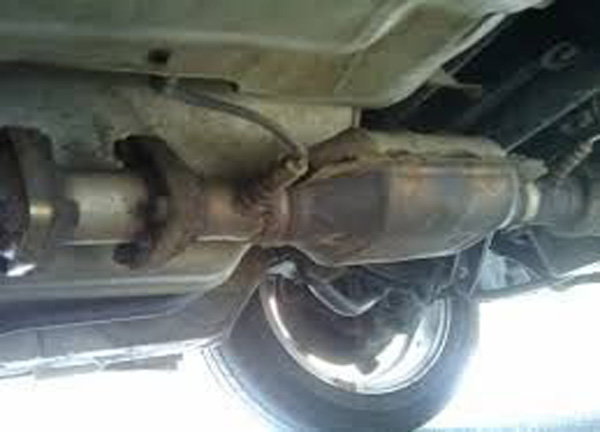
(Related Article: How to Test and Replace Oxygen Sensor - Honda-Tech.com)
Step 6 – Dirty EGR passages
Dirt can clog your EGR passages, and can make your engine jerk. Clean them up, and your engine will run smoother as well as longer.
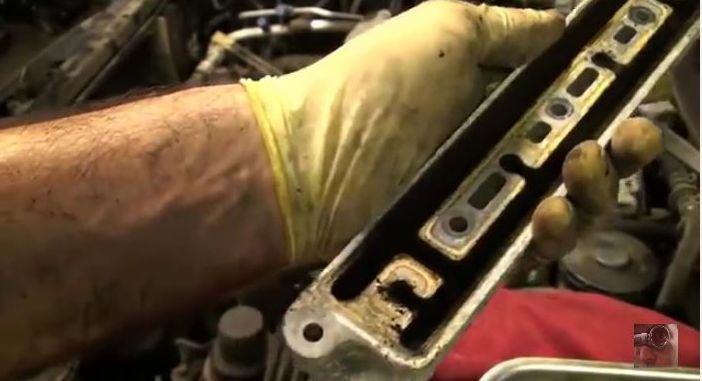
Figure 6. Gunk on the EGR gasket. 
Figure 7. Dirt as well as grime in and around an EGR passage.
Step 7 – Bad motor mount
A bad motor mount can cause your engine to shake and rattle. Replacing the motor mount is a one and a half hour job.

Pro Tip
Inspect both mounts for cracks, but replace both only if they're both bad.
Step 8 – A/T clutch pressure control solenoid A/B assembly
Honda says this solenoid, if faulty, can cause transmission slippage, which can cause engine jerking. The solenoid controls pressure of the clutch packs in the automatic transmission. The diagram below shows the location of the solenoid on the side of the transmission.
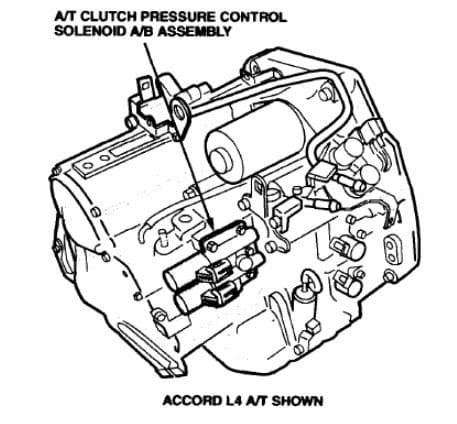
Related Discussions, and Videos
- Car Jerking at Idle - Honda-Tech.com
- Car Jerking on Decel - Honda-Tech.com
- Automatic Transmission Jerking - Honda-Tech.com
- How to Replace Motor Mount Honda Accord - YouTube.com
- How to Remove Clean Throttle Body - YouTube.com


